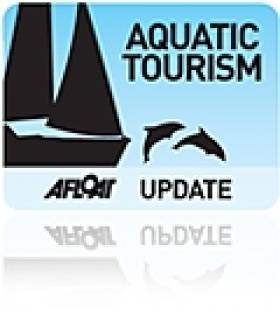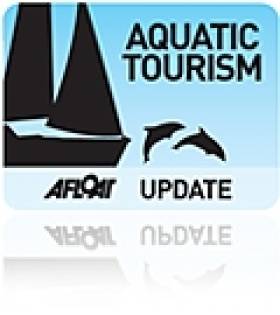Displaying items by tag: Les Glenans
Baltimore Maritime Centre to Expand West Cork Sailing Courses in 2015
#baltimore – BMC/Glenua was formed in 2013, in order to continue the sailing activities of Les Glénans in Baltimore, West Cork, and we have now completed our first season in operation writes Chairman Michael O'Meara.
Baltimore Maritime Centre ran a limited number of residential keelboat courses in Heir Island, adjacent to Baltimore, using a fleet of Glénans 570s. The courses proved to be a great success, with excellent on-shore facilities provided by John Moore of Heir Island Sailing School, a new and exciting sailing area and easy access for sailing in-company to the other islands in Long Island Bay. We also ran a limited number of cruising courses between Kinsale and Baltimore using a chartered Hanse 360 from Sovereign Sailing.
For 2015 we are expanding our residential courses in Heir Island and will have 7 day, 5 day and weekend courses in June, July, August and September. We will run 4 cruising courses in July and August out of Baltimore. The 2015 Sailing Programme is included in our latest newsletter.
The Baltimore and Collanmore bases are still for sale by Fáilte Ireland with some modest offers standing on the Baltimore premises. The West Cork Maritime Heritage Company has been formed in Baltimore with a view to raising funds to make an offer for the old railway station property. If this is successful the property would be developed and used for sail training, traditional boat building, maritime archaeology courses and become the location of a maritime heritage data base. BMC/Glenua would then have the possibility of becoming part of a new and exciting multi purpose maritime centre for the West Cork region.
Attached is a copy of our latest member's newsletter, The Beacon.
Fair winds for 2015,
Michael O'Meara
Chairman
Baltimore Maritime Centre/Glenua
Baltimore Maritime Centre Receives Widespread Support
#westcorksailing – Balitmore Maritime Centre (BMC) was formed in 2013, in order to continue the sailing activities of Les Glénans in Baltimore, West Cork which have ceased. Here BMC chairman Michael O'Meara outlines the work of the centre since it started activities earlier this year.
Both Baltimore and Collanmore sailing bases have been put on the market by Fáilte Ireland. We have been unable to secure a lease on the Baltimore property as Fáilte Ireland are not engaging in that type of business activity anymore. However, we are keeping a watching brief on the sale of Baltimore and there are moves afoot locally to secure funding to make an offer to purchase the base. There has been widespread support for Baltimore Maritime Centre/Glenua in Baltimore and Skibbereen and this is very encouraging looking towards the future. We have ongoing liaison with local businesses and other interests.
On a more practical level, BMC/Glenua, in conjunction with the local maritime heritage group has produced a comprehensive proposal for the development and use of the base. This proposal encompasses traditional boat building, maritime archaeology and a maritime heritage data base whilst ring-fencing and enhancing our Les Glénans style sailing activities. The Baltimore Maritime & Training Project document is reproduced in our newsletter, The Beacon, attached for your information.
We are using this proposal in our engagements with state agencies, politicians and funding agencies. If this proposal is successful, it will give BMC/Glenua security of tenure, enhance the total sailing experience, have the capability of using the base all year round and provide a greater economic unit to make the project sustainable for the long term.
Our fleet of 6 GL 570s were re-located to Heir Island in June in order to provide keel boat courses in a very successful joint venture with John Moore of Heir Island Sailing School. The boats are now back at anchor in Church Strand Bay, Baltimore. More courses will be available during August. We have just completed our July cruising courses running between Kinsale and Baltimore and again, more of these courses will be available during August.
A copy of the BMC newsletter, The Beacon is attached below.
Glenans Irish Sailing Club to Reunite with Les Glenans in France
The reintegration will reunite two associations which share the common aim of bringing people together through a love of sailing and the sea. It will give the Irish members access to Les Glenans' Europe wide sailing activities and allow Les Glenans to offer a unique Irish sailing experience to its 14,000 members.
The decision will allow the Glenans sailing school activity to continue in Ireland at both bases in Collanmore and Baltimore, and it secures the financial future of the Irish organisation which has experienced an increasingly difficult trading environment since the start of the recession.
Paul Rossiter, Chairman of Glenans Irish Sailing Club welcomed the unanimous vote in favour of the reintegration. "This sends a clear signal to Les Glenans that our members are strongly in favour of reuniting our interests", he said. "Les Glenans is the perfect partner," he added. "We share the same values and objectives, and the same DNA."
Luc Fourichon, the President of Les Glenans said "One of our main aims is to create, by sailing, links between members from various countries and various walks of life. Our Irish friends are very welcome on board. Let's sail together"
Under the agreement Les Glenans will take over the assets and liabilities of Glenans Irish Sailing Club. The Club's two Irish sail training bases at Baltimore, County Cork and at Collanmore Island, in Clew Bay, County Mayo will continue to operate with new investment in equipment and facilities planned.
The Irish bases will become part of Les Glenans network of sailing bases across France and Italy. Ireland will form one of Les Glenans five administrative sectors, with Irish members having full voting rights in the enlarged association.































































